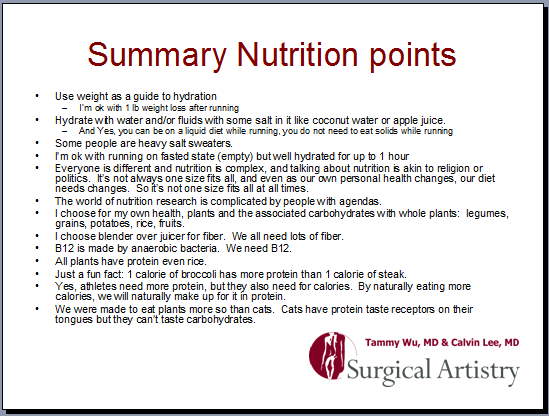I had my reasons in 2012 for wanting to become vegan. My main reason at the time was for health reasons. I was overweight, and I had incredibly horrible blood pressure – as a doctor, it’s embarrassing to find out that I had the worst blood pressure I’ve ever seen in a walking person and it was strange that I was still alive. I kept checking my blood pressure in denial thinking that perhaps the equipment was broken. I registered blood pressure of 180/110 regularly back then. My other doctor colleagues thought I was exaggerating or concerned that I was going to get a stroke any minute. Now after changing my dietary habits, it’s more like 130/80 – still not perfect, but a big improvement. You may have other reasons for becoming a plant based eater, like another family members wants to try it or perhaps it’s compassion to animals. Later in my journey, which started for health, it became more of a concern for reducing my footprint on earth and realizing that I can survive without animal foods.
Some tips I have for you on how to make the transition to a plant based or even a healthier diet.
1. Make it physically easy to eat healthier. Move some of the unhealthy foods to lower or higher shelves. Make it easy to reach for the healthy alternatives. Have fruit cut up and available more often than candy. Or better yet, give the food you don’t want to your enemies.
2. Spend time each day to educate yourself about healthier eating. There’s so much information out there for free on the internet. Sometimes it’s confusing. I do like www.nutritionfacts.org as a great starting point.
3. Reflect each day on how you did for your eating habits, and commit to trying to do better each day. Forgive yourself if you slip from time to time.
4. Decide for yourself what are your reasons for having a plant based diet.
5. Visualize your goals.
6. Tell others about your goals – so they can help hold you accountable.
7. Surround yourself with like minded people – people who are vegan perhaps. After all, perhaps we’re the “average” of our social surroundings. Or find a Vegan facebook group for example.
8. Stick to the plan of eating plant based for 2 months. It takes about 2 months to create or change a habit. It may start as an experiment, and later it becomes a routine and a way of life.
Best wishes on your journey, and I hope I could be of some service to you.
Calvin Lee, MD


